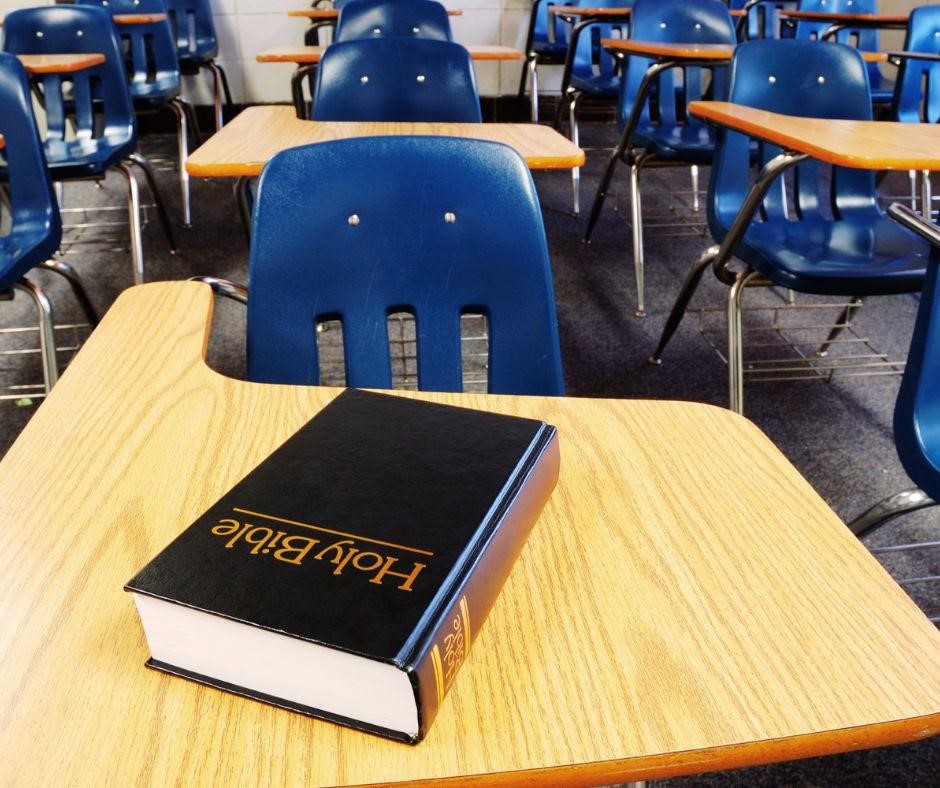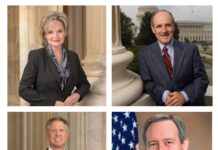By Sarah Holliday
The Washington Stand
One vote can make an enormous difference. In Texas, it was a single vote that allowed biblical material to be included in the local public schools through the state-authored curriculum, Bluebonnet Learning (BL). On Friday, eight of 15 Texas State Board of Education members voted it through. Although it was not free from controversy, last week’s decision means the new curriculum will be available starting in the spring and likely put to use within the 2025 to 2026 school year.
Notably, the biblical material included in BL is optional. As The Texas Tribune summarized, “The curriculum was designed with a cross-disciplinary approach that uses reading and language arts lessons to advance or cement concepts in other disciplines, such as history and social studies.” Some of the specific Christian references and teachings integrated into BL is Jesus’s parable of “The Good Samaritan,” which can be found in Luke chapter 10, and the “Golden Rule,” found in Matthew 7. The Tribune noted that these parables are “about loving everyone, including your enemies.” The Golden Rule, as stated in the Bible, says, “So whatever you wish that others would do to you, do also to them.”
Those who voted against this curriculum included all four Democrats who are on the board, as well as three Republicans. According to The Daily Wire, several Democrats who voted against it felt concerned it would “force Christianity on public school children.” Of those Democrats, Staci Childs verbalized her belief that the curriculum will eventually find itself in court. She told NBC News, “[I]f a parent or a teacher who didn’t feel comfortable teaching this were to bring this up to a court, I believe they would be successful.” Childs also noted that, in her opinion, “these materials are [not] yet reflective of the experiences and the nuance of Texas students.”
Conversely, Republican board member Will Hickman celebrated the future of Texas public schools now that BL has been approved. “In my view,” he said, “these stories are on the education side and are establishing cultural literacy. … [R]eligious concepts like the Good Samaritan and the Golden Rule and Moses [are ones] that all students should be exposed to.” Apart from the board members, it appears parents were also divided on the topic. However, The New York Times reported on one mother’s opinion, in which she stated that the incarnation of Jesus “is and always will be the hinge of all of history.” This mother also posed the question: “How would the canceling of such fundamental facts serve the education of our children or contribute to shape them morally?”
To add to the conversation, Joseph Backholm, Family Research Council’s senior fellow for Biblical Worldview and Strategic Engagement, offered a comment to The Washington Stand. “The classroom will never be values neutral,” he said. “We’ve seen the aggressive way some classrooms have pushed the Sexual Revolution, which is essentially just a different religion. [So,] the fact that the curriculum includes biblical stories doesn’t mean its teaching Christianity, just that they aren’t pretending there is something dangerous about biblical stories anymore.”
Backholm agreed that “the history of America is largely Christian. It’s not possible to have a clear understanding of American history without understanding the role faith played in the lives and beliefs of our founders.” According to Backholm, “This is just one of the many ways that biblical knowledge is [simply] part of a basic education. If you learn American history, you’ll learn about the Bible.”
Ultimately, Backholm believes parents should “be the primary shapers and guardians of children, [but] we don’t want our fear of ‘religious instruction’ to make us afraid of giving a real education. [Because] in the American context, knowing about our history and culture requires knowledge of the Bible.”
FRC’s Meg Kilgannon, senior fellow of Education Studies, also weighed in with TWS. “The folks who are concerned about ‘teaching Christianity’ in classrooms have likely never batted an eye over mindfulness lessons or practice for children, Greek and Roman mythology, and other types of religious content in schools.”
She continued, “Biblical or overtly Christian content is too controversial for use in the classroom when viewed through the ‘lens of inclusivity.’” Agreeing with Backholm, she noted, “There is simply no way to separate America from its expressly Christian foundation, [even] though the educational industrial complex continues to try.” At the end of the day, Kilgannon said she’s “grateful for the Texas school board members who voted to support this measure. We must continue to pray for America’s schools, families, and school children. We must also support local leaders who take a stand for God and country.”
Kilgannon concluded, “Education has always been about state and local control. It’s our duty to pay attention to local matters and make sure our perspectives are heard.”

















